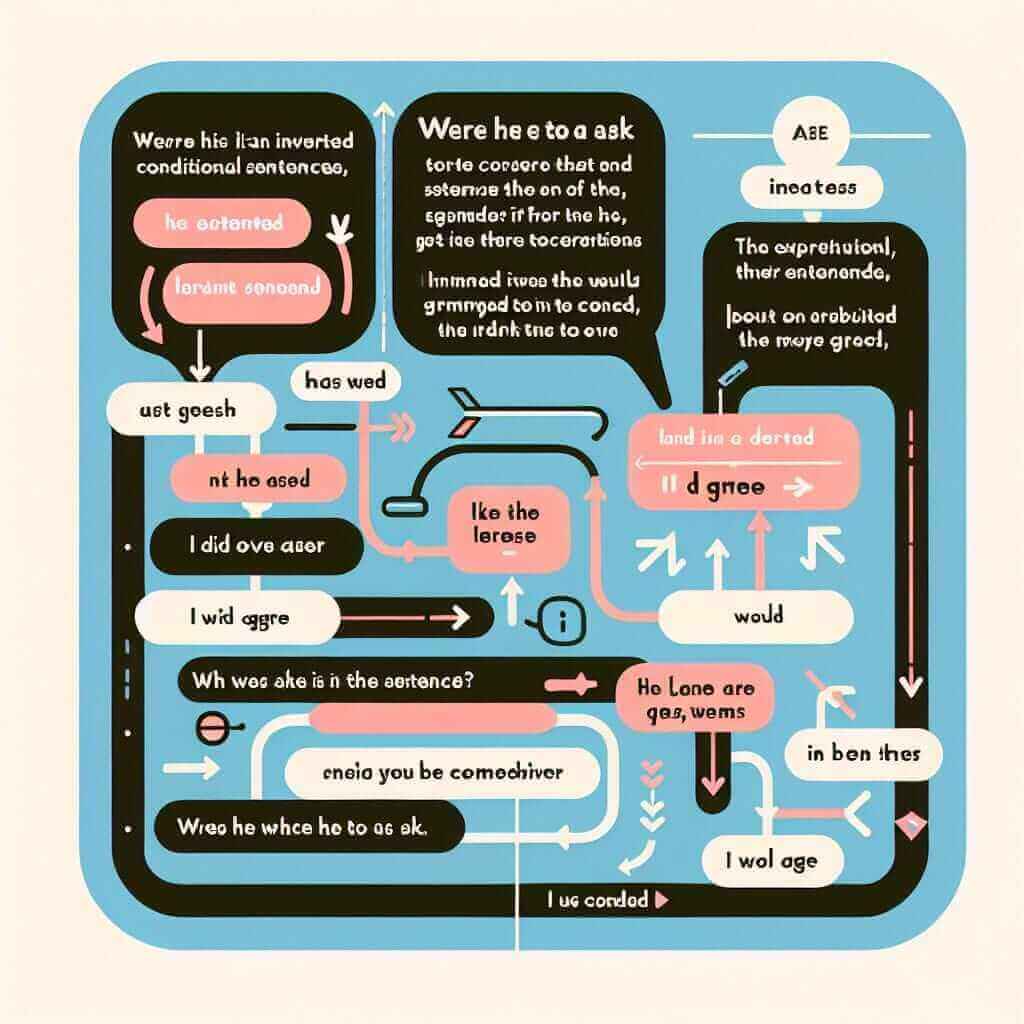Many IELTS candidates find themselves puzzled by sentences like “Were he to ask, I would agree.” This structure, while seemingly archaic, showcases a nuanced understanding of English grammar that can impress examiners and boost your IELTS band score. This article delves into this unique grammatical construction, exploring its meaning, usage, and how you can effectively integrate it into your IELTS writing and speaking.
Let’s examine a few examples of how this structure might appear in the context of an IELTS exam:
- Speaking Part 3: “Do you think governments should invest more in renewable energy?” Response: “Absolutely. Were they to invest more heavily in solar and wind power, we would see a significant reduction in carbon emissions.”
- Writing Task 2: “Some people believe that technology has made our lives easier. Others argue that it has made life more complicated. Discuss both views and give your opinion.” Response: “While technology has undoubtedly brought convenience to our lives, it has also introduced complexities. Were we to solely rely on technology, we would risk losing essential skills and becoming overly dependent.”
As you can see, this construction allows for sophisticated expression of hypothetical situations and their potential consequences. Now, let’s analyze the structure of these sentences:
“Were he to ask, I would agree”
- “Were he to ask”: This is a conditional clause expressing an unreal or hypothetical situation in the present. Notice the inversion of the subject (“he”) and the verb (“were”).
- “I would agree”: This is the main clause stating the consequence of the hypothetical situation. It uses the conditional modal “would” to indicate the hypothetical nature of the outcome.
Understanding “Were He to Ask, I Would Agree”
This structure is known as the inverted conditional. It’s used to talk about hypothetical or unlikely situations in the present or future. The use of inversion adds a formal and literary tone to your writing and speaking.
Construction and Usage in IELTS
Formula and Explanation
The formula for this inverted conditional structure is as follows:
Were + Subject + to + base form of verb + …, Subject + would/could/might + base form of verb + …
Breakdown:
- “Were”: This is the past subjunctive form of “to be”, used regardless of the subject.
- Subject: The person or thing performing the action.
- “to”: This is followed by the base form of the verb.
- “would/could/might”: These modal verbs express the hypothetical consequence.

Application in IELTS
Speaking:
- Part 2: “Describe a time you had to make a difficult decision.” Response: “It was a tough call, but were I to go back, I would still make the same choice because…”
- Part 3: “Do you think people are becoming too reliant on technology?” Response: “It’s a valid concern. Were we to lose access to technology, many people would struggle to cope.”
Writing:
- Task 1 (describing a process): “Were the temperature to exceed a certain limit, the system would automatically shut down to prevent overheating.”
- Task 2 (opinion essay): “Some argue that space exploration is a waste of resources. However, were we to cease all space exploration efforts, we would be limiting our understanding of the universe and potentially missing out on crucial discoveries.”
Mastering the Inverted Conditional for a Higher Band Score
To truly impress the examiner, consider these tips:
- Vary your modal verbs: Instead of always using “would,” experiment with “could” and “might” to express different levels of certainty. For example, “Were she to apply herself, she could achieve great things.”
- Combine with other structures: Use the inverted conditional alongside other complex grammatical structures to demonstrate mastery of English grammar. For example, “Had I known the consequences, I would have acted differently. Were I to face a similar situation in the future, I would certainly handle it with more caution.”
Common Errors and How to Avoid Them
- Incorrect verb form: Using the incorrect form of the verb after “to” is a common mistake. Remember to use the base form of the verb. Incorrect: Were he to asking, … Correct: Were he to ask, …
- Missing inversion: Forgetting to invert the subject and verb in the conditional clause can lead to grammatical errors. Incorrect: He were to ask, … Correct: Were he to ask, …
Conclusion
Mastering the inverted conditional, like the “Were he to ask, I would agree” construction, is a surefire way to elevate your IELTS performance. By understanding its form, function, and nuances, you can express complex ideas with clarity and sophistication, ultimately impressing your examiner and achieving your desired band score. Remember to practice implementing this structure in various contexts relevant to the IELTS exam.